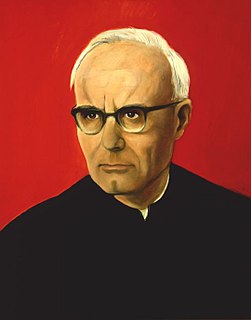A Quote by Helen Keller
The heresy of one age becomes the orthodoxy of the next.
Related Quotes
But why do some people support [the heretics]?" "Because it serves their purposes, which concern the faith rarely, and more often the conquest of power." "Is that why the church of Rome accuses all its adversaries of heresy?" "That is why, and that is also why it recognizes as orthodoxy any heresy it can bring back under its own control or must accept because the heresy has become too strong.
To ask for overt renunciation of a cherished doctrine is to expect too much of human nature. Men do not repudiate the doctrines and dogmas to which they have sworn their loyalty. Instead they rationalize, revise, and re-interpret them to meet new needs and new circumstances, all the while protesting that their heresy is the purest orthodoxy.


































